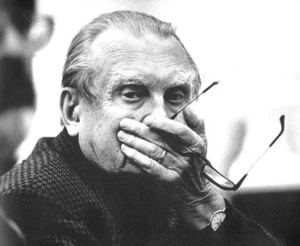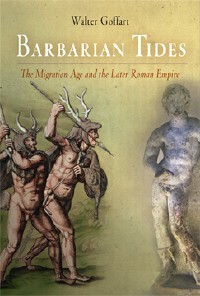
Since September of last year (2005), the BABEL Working Group has been organizing sessions at various conferences around the topic of "Medieval to Modern Humanisms" and we have been asking scholars from both within and outside of medieval studies (and we are also seeking persons from outside the academy as well) to contribute to what we see as long-term (ten to twenty year
plus) project aimed at formulating what might be called, for lack of a better term at present, a "new humanities." This fall, Christine Neufeld (Eastern Michigan Univ.) and I will be co-editing a special issue of the
Journal of Narrative Theory (Winter 2007 issue) devoted to the early stages of this dialogue (initiated at two conferences in Sep. 2005 and May 2006, and to be continued in Oct. 2006 in Oxford, MS and in May 2007 at Kalamazoo). Because we wanted those participating to have as broad a base as possible for beginning to think about the topic, we indicated that anything that touched, in any way, upon "humanism," "the humanities," and "being human"--past and present--would be ideal, and other than that, there are no parameters for the discourse, although we did formulate some questions as "jumping off" points, such as:
Can we have humanism, or the humanities (or human rights) without the human? How does the concept (or, reality) of "the posthuman future" impact the ways we develop our notions of humanism, both past and present? Were the Middle Ages already posthuman (as Jeffrey J. Cohen has argued in his book
Medieval Identity Machines), and what can this tell us about the supposed posthuman future? How does the concept "humanism" productively and/or antagonistically intersect with "the medieval" and "the modern"? In what ways might the terms/historical entities "the medieval" and "the modern," with respect to the vigorous debates over the value (or lack thereof) of humanities study, be allies on either side of the Enlightenment divide? What is the role of the individual in relation to concepts of humanism, past and present? What is the role of language in relation to being and body, past and present? How might recent findings in cognitive science--such as, as George Lakoff and Mark Johnson put it in
Philosophy in the Flesh, "The mind is inherently embodied" and "Thought is mainly unconscious" and "Reason is not dispassionate, but emotionally engaged" (pp. 3, 4)--affect how we might re-think our philosophies of the humanities? Is the human performed, contingent? Is it possible to have the experience of one's identity in the world, embodied and dismebodied, without recourse to "being human"? Is humanism a philosophy, or set of ideas (or, of historically-situated socio-critical practices) that has lost its raison d'etre, or is it time for a "new humanism" or no humanism at all?
In relation to some of our recent debates here on "In The Middle" regarding how and/or whether "history matters" and in relation to the scientists vs. the so-called humanists, etc., I share here two brief excerpts from comments presented at BABEL's "medieval to modern humanisms" session at Kalamazoo this past May. The first is from Michael E. Moore, who is an historian of the Carolingian period and who also has a book forthcoming from Penn. State Univ. Press on Carolingian law. He is a colleague of mine at Southern Illinois. The second excerpt is from Craig Dionne, an early modernist at Eastern Michigan who is also one of the editors of the
Journal of Narrative Theory and the co-editor, with Steve Mentz, of
Rogues and Early Modern English Culture (Univ. of Michigan Press).
A Milozan Humanism? [an excerpt]In 2000, the critic George Steiner was invited to look back over the twentieth century, in an interview with
L’Express. He pointed to the barbarism of a century marked by death camps, torture, deportation and famine, extending from 1914 to Pol Pot and the Rwandan genocide. The twentieth century proved to be the defeat of civilized culture, according to Steiner: “Education: philosophical, literary and musical culture, did not impede the horror. Buchenwald was situated a few kilometers from the garden of Goethe.” This was decisive: the ideal of humanity developed in the Enlightenment of the Eighteenth century had failed to humanize the world. The humanizing effect of the liberal arts also seems doubtful in the extreme. The humanities have become an isolating preserve in which the world is kept at bay. While reading
King Lear or the
Fleurs du Mal, we become deaf to the cry in the street. According to Steiner, his best student was the one who completely rejected his teaching and went on to become a doctor, serving the poor in China.
Humanism has been criticized in this way ever since the Second World War. In 1951, the anthropologist Lévi-Strauss argued that Europeans of the Enlightenment, when they spoke of humanity, did nothing more than project their own values and aspirations as an ideal of civilization: “they turned their condition into a model: their customs became universal aptitudes, their values absolute criteria for judging.” So now, in the conditions of “postmodern pluralism” the very concept of humanity seems suspect, unphilosophical, or even undemocratic. Yet Paul Ricoeur pointed to the problem that with the defeat of the Enlightenment it is difficult to theorize, let alone defend, the existence of human rights. A similar problem arises for historians.
A quite different voice was raised in the wake of World War Two in the poetry and essays of Czeslaw Milosz, who endured the siege of Warsaw, and went on to live a life devoted to literature. I wonder if it is possible to outline a Miloszan humanism? The fourteenth-century humanist Nicholas of Cusa once spoke of his mystical search for God as a “spiritual hunt.” Milosz conveyed in many of his poems a similar hunt for the receding essence of the world: – and the effort to close one’s fingers around the past even as it fades from view: recalling days with a fellow poet long ago in Poland, Milosz said: “Great was that chase with the hounds for the unattainable meaning of the world.” Part of this chase for Milosz was always for the difficult, faded being of the human past. Here he finds it captured in an old Dutch painting: "Hans Post, his Brazilian landscapes painted around 1650…what moves me is a contrast between the earth and a group of people dead long ago…Brazilian Indians who disappeared both as particular beings and as a tribe. Solidarity with the tiny figures in whom our hopes and our troubles persisted for a while and can be looked at through a magnifying glass."
Solidarity. The dead have a claim on us with their long-forgotten passions and foibles, their delicate breath can still stir the hair on our necks. This regard even extends to the realities invoked by literature. In the poem “Undressing Justine” Milosz discovers and makes love to a character from an old Polish romance novel. The being of this delectable character is also human, and therefore worthy of being cherished: “Though you never existed, let us light candles / Here, in our study, or in our church.”
Milosz is one of the most important writers on the subject of time and memory since St. Augustine, and his work therefore has the effect on an historian like the smell of woodsmoke on an Autumn day. He was dismissive of those who would find in history the source of a program: “He who invokes history is always secure. / The dead will not rise to witness against him. / You can accuse them of any deeds you like. / Their reply will always be silence.” The dead require us to speak for them. This charge is laid on the poet, and the historian, both of whom are subject to visitations. Milosz found himself continually haunted by the uprising of people out of the past: a woman walking with a red umbrella in a sunlit field or an old priest blowing out candles in a dark church. It could happen as he gathered apricots: “I reach for a fruit and suddenly feel the presence / And put aside the basket and say: ‘It’s a pity / That you died and cannot see these apricots’…”
This is to notice something subtle in the fabric of life, which points back into the depths, and offers itself as a tenuous path toward the meaning of the world. This is the Spur, the vestige, always looked for by the historian. The presence is sometimes felt even at the reading desk of an archive.
The Orkney poet George Mackay Brown explained his own work in similar terms: “I have a deep-rooted belief that what has once existed can never die: not even the frailest things, spindrift or clover-scent or glitter of star on a wet stone.” This is the essence of a Miloszan humanism: the endeavor to capture the world of coming-to-be and passing-away, above all, to hold and defend the traces of the fragile “human reed” of Pascal’s famous fragment. To quote the historian Jean Leclercq, “nothing is more constant in history than the ephemeral.” This is a burden that historical research must try to carry, even if it is clumsy, and less capable than poetry of handling those past lives with sufficient delicacy and gravity, or of capturing their reality in fine nets of language.
Humanism is a pilgrimage across the human and natural world; in a search for human dignity and, let it be said, for personal liberation in the study of literature, philosophy and history, especially the literature of the ancient world. Humanism desires to keep hold of the delicate frail things of the world and of humanity. Thus it is not surprising that since the Middle Ages, the study of the humanities has so often had to engage in a confrontation with crude social forces. Study of humanity and the natural world was undertaken to achieve an ideal of humanity in one’s own life, and this is often forgotten by scholars.
--Michael E. Moore
Between Appreciation and Historicism: Is It Possible to Articulate an Historically Engaged Aesthetics? [an excerpt]The ideological contradiction at the heart of contemporary humanism’s “multi-cultural” model of literacy (or its alternative, literature as a catalyst for ethical self-awareness, say, following Martha Nussbaum) is that it mobilizes the mimetic theory of art to rationalize the literary texts as a window into social difference (race, gender, class, etc.). And while many humanists today might not see this as a problem or concern, we would have to admit that at the very least this unchallenged mimeticism flies in the face of the theory we teach in our literary criticism classes. Or, to put it another way, we could be taken to task for reinforcing with one hand a static view of history that subtly legitimates social inequalities as “natural” and endemic to history, while calling for the critical deconstruction of such ideologies with the other hand in our research and in our grad seminars. This is probably not a new a problem as I find it (and I hear in the back of my head as I write this a replay of the late 80’s early 90’s debates about strategic essentialism….)
So, for me, this paradox is crucial--what motors it, what is it a symptom of? What results, then, from this dialectic at the heart of our humanism? How can we discuss this as a symptom of a larger history: of humanism’s legacy? Of a gap in the “use value” of humanism generally at this stage of western history(ies)? How does this conversation resemble other gaps in humanism from other periods? Are we comfortable reinforcing mimesis in our undergraduate appreciation classes, while reinforcing another type of critical awareness in our upper-level and grad classes? Is this just a strategy we use? Or does such a split reinforce a elitism between literature and theory that it is the goal of humanism--at least for me--to challenge. Does this contradiction make humanism today distinct, say, from other earlier forms? How can we think of other chapters in the history of humanism that tell us about the functional “uses” of humanist literacy vs. its radical potential? What about . . . Renaissance English humanism, which emphasized the technique of copying aphorisms into individualized “commonplace books” to reinforce rote memory to self-fashion, climb social hierarchies, and serve the state. This technique flew in the face of other techniques, like the rhetorical technique of
in utramque partem, which asked writers to probe the depths of social issues by examining two, antithetical positions of the problem. While rote literacy reinforced service in the court, rhetoric in this vein lead to some of the most radical challenges to early modern absolutism. What, finally, do these other chapters in the history of humanism tell us about the dialectical “pull” of our own moment?
I will end by noting the parallels between early and contemporary humanisms--especially, in contemporary pedagogical approaches to literature that aestheticize the ambivalence of the early modern art and literature as an inherent pluralism; that is, teaching students that real or true literary texts empower critical reflection through moments of ambiguity in representation. This, I would say, is the ideological "mission" of a new elitism that wants to rationalize its idea of a "living-text aesthetics" that brooks no argument with the instrumental corporate discourse against literature. In response to the professional managerial class’s call for “excellence” and “strategy” in the humanities, the new aesthetic movement in literature, or the "turn to ethics" as it is sometimes noted, creates a kind of Victorian pseudo-aristocratic identity that can reclaim a more energized retake of aesthetic engagement--as if to suggest, “okay, ‘literature,’ but this time with feeling”--as an escape from the instrumental world that is intimated in the new historicism’s “situating” the text in its local and political moment. But this is a rear-guard if not wholesale retrenchment of the worst abuses of formalist myopia, for surely we can find a way to articulate a textual appreciation that does not turn its nose so completely from the critical reflection involved in historicizing texts. We don’t have to read the text as an allegory of stable and essential categories of truth from the our present moment, through Kant, Levinas, Heidegger, etc. while avoiding the challenge of structuralism as if it didn't happen. (Although, you have to admire the brio). Such performances are a ghostly equivalent of the Renaissance emphasis on linguistic display as a vehicle for self-presentation: marshalling the radical potential of humanism for an elitist celebration of the Self and its mastery of the object world. This literacy may have jarred the strictures of patrician culture in the sixteenth century, but today its close reading of figurative tropes through philosophical discourse reconstitutes a rear-guard humanism that appears arrogant about its decision to avoid questions of textual politics.
This, for me, is the "moment" of contemporary humanism that begs the question, what next? There are no easy solutions, but for me I am happy to teach literature as a reflex of cultural pluralism--how to prize texts that are plural, how to deconstruct monological texts into polyvalent ones, to discover how moments of history provide occasions for writers to puzzle through human antinomies from special vantage points that are unique to time and place as much as voice. This ultimately fights the local battle of producing readers who can resist the new evangelical right and its hegemony, while also inculcating the value of appreciating literatures that represent multiple and competing voices. But we have to acknowledge that this aesthetics is located in our practice, our institutions. To locate this "pluralism" in the text as a source—a text mystified “in itself” as the singular source of the pluralist ethics we seek, of the culture we want to build--reproduces a metaphysical reverence for the text, not a critical appreciation. And like the Renaissance humanism of the sixteenth century, such a move might appear to break free the confines of the business class’s vision of the humanities, or historicism’s cynical detachment from aesthetics, but the theoretically silent return to aesthetics may eerily parallel in its reverence for the art-text the ideology or inner logic of a theocracy’s emphasis on textual literalism.
--Craig Dionne
Any thoughts on any of this would be great, as Christine and I will be working this fall on an Introduction to the special issue of JNT. Later, I will share some other excerpts. Cheers.

















